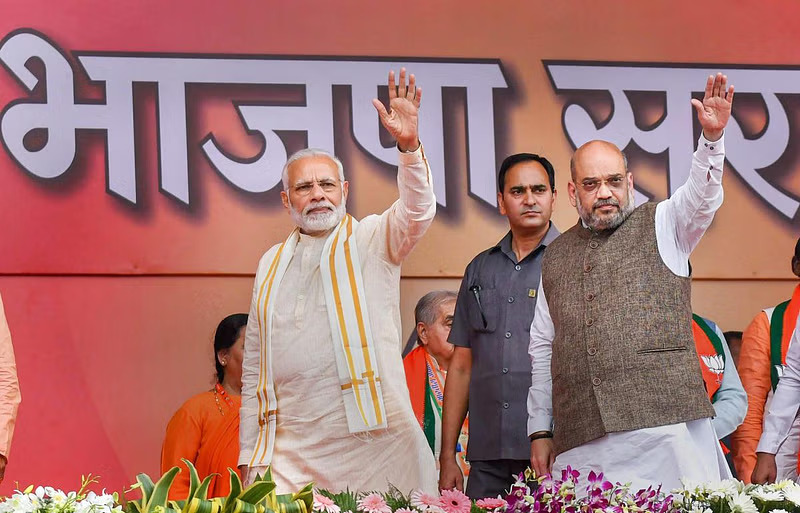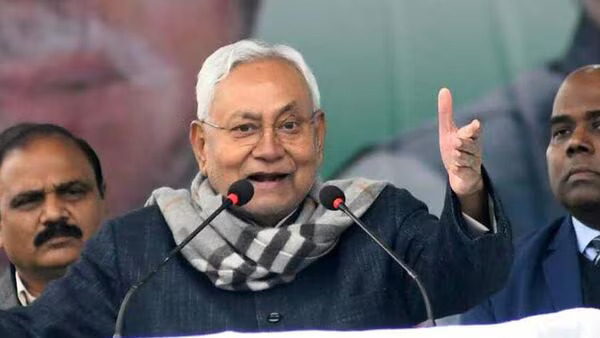
India’s political landscape has been dynamic, with significant developments shaping the nation’s domestic and international trajectory. This article provides an in-depth analysis of the latest events, policies, and political maneuvers influencing India’s governance and its role on the global stage.
1. Strengthening International Ties: India and New Zealand Revive Free Trade Talks
In a significant move to bolster bilateral relations, Indian Prime Minister Narendra Modi and New Zealand Prime Minister Christopher Luxon convened in New Delhi to rejuvenate discussions on a free trade agreement. This initiative aims to deepen defense and economic collaborations between the two nations. The leaders formalized agreements enhancing cooperation across sectors such as defense, food processing, pharmaceuticals, renewable energy, and critical minerals. Prime Minister Luxon emphasized the importance of this partnership, highlighting opportunities for collaboration in trade, education, tourism, sports, and culture. Accompanied by a delegation of business leaders and parliamentarians, Luxon’s five-day visit underscores the commitment to integrating supply chains and improving market access. Bilateral trade between India and New Zealand was valued at $1.7 billion for the fiscal year 2023-24. This development aligns with India’s broader strategy to finalize trade agreements with major economies, including the European Union and the United Kingdom.
2. Investing in the Creator Economy: India’s $1 Billion Initiative
Recognizing the burgeoning potential of the creator economy, the Indian government has announced a substantial $1 billion fund dedicated to supporting content creators. This initiative aims to enhance creators’ skills and facilitate their expansion into global markets. Additionally, ₹4 billion has been allocated for establishing the Indian Institute of Creative Technologies in Mumbai. This strategic move leverages India’s strengths in media and entertainment, aspiring to emulate the global success witnessed by countries like South Korea and Spain. Projections indicate that user-generated content could reach a market size of $1.1 billion by 2027. However, concerns have been raised regarding the clarity of the government’s strategy to effectively implement this initiative. Concurrently, the rise in the number of millionaires in India presents opportunities for wealth management sectors, although the trend of affluent individuals relocating abroad poses challenges in retaining wealth within the country.
3. Foreign Policy Perspectives: An Interview with Foreign Minister S. Jaishankar
In a recent interview, Indian Foreign Minister S. Jaishankar shared insights into India’s foreign policy direction amidst a transforming global order. He expressed a pragmatic approach, emphasizing the need for global governance structures, such as the UN Security Council, to adapt to contemporary realities. Jaishankar highlighted India’s growing economic influence and the importance of maintaining strategic relationships with global powers, including the United States and Russia. He also addressed challenges such as border tensions with China, reflecting a realist perspective shaped by his extensive diplomatic career.
4. Press Freedom Under Scrutiny: The Case of Raphael Satter
The Indian government’s decision to revoke the Overseas Citizen of India (OCI) status of U.S. journalist Raphael Satter has sparked debates on press freedom. Satter, who reports on cybersecurity for Reuters, had his OCI status canceled following a critical article about an Indian businessman. This action prevents him from visiting India, where his family resides, and is viewed as part of a broader pattern by the ruling Bharatiya Janata Party (BJP) to suppress dissent. Human rights advocates have criticized these measures, emphasizing the need to uphold democratic principles and freedom of the press.
5. Electoral Reforms and Regional Disparities: The North-South Divide
The proposal to redraw parliamentary constituencies based on new population data has ignited concerns among southern Indian states. Parties, particularly in Tamil Nadu, argue that this move could disproportionately enhance electoral power in the populous northern states, which are strongholds of Prime Minister Narendra Modi. Southern states, having effectively managed population growth through successful policies, fear that the reallocation plan would undermine their achievements by rewarding regions with unchecked population growth. This issue has exacerbated existing tensions related to federal fund distribution and language policies, highlighting the need for political consensus to address regional disparities.
6. Domestic Political Developments: Delhi Legislative Assembly Elections
The political landscape in Delhi is gearing up for the upcoming Legislative Assembly elections. The Aam Aadmi Party (AAP), led by Arvind Kejriwal, has initiated its campaign by announcing schemes such as the Mahila Samman Yojana, which aims to provide monthly financial assistance of ₹2,100 to women, and the Pujari Granthi Samman Yojana, offering ₹18,000 to temple priests and gurdwara granthis. The Bharatiya Janata Party (BJP) has launched the Parivartan Yatra, focusing on alleged corruption within the AAP government and issues like water shortages and pollution. The Indian National Congress is conducting the Dillī Nyāya Yātrā, addressing concerns such as pollution, inflation, unemployment, and garbage disposal, and has proposed universal health insurance covering costs up to ₹25 lakhs for Delhi residents.
7. Social Policies and Welfare Schemes: Focus on Women’s Empowerment
Various state governments are introducing policies aimed at women’s empowerment and social welfare. For instance, the Congress party has announced the Pyari Didi Yojna, a proposed scheme to provide financial assistance of ₹2,500 per month to women in Delhi, modeled after the Gruha Lakshmi scheme implemented in Karnataka. Such initiatives reflect a growing emphasis on addressing gender disparities and promoting economic independence among women.
8. Technological Advancements and Cybersecurity: Navigating the Digital Frontier
India’s rapid digital transformation has brought cybersecurity to the forefront of national policy. The government’s initiatives to support the creator economy and establish institutes like the Indian Institute of Creative Technologies underscore the importance of securing digital platforms and protecting content creators from.


